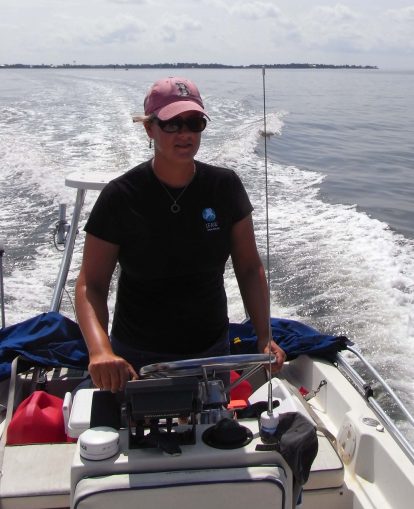
The Department of Biology took a proactive approach to keeping our students and faculty safe by transitioning all undergraduate classes to online learning by mid-March. The online transition presented plenty of challenges, including accessibility issues and proctoring exams. Faculty stepped up, making the most of Zoom, Honorlock and other technology. The transition greatly benefited from the experience and leadership of Dr. Stefanie Gazda, the Biology Online Major Coordinator. “The biggest challenge was getting the really big BSC2010 and 2011 labs in an online format,” said Dr. Gazda.
One especially timely Biology course during the COVID-19 outbreak was Dr. Tom Hladish’s course on Infectious Disease Epidemiology. After Dr. Nick Keiser’s study abroad course was canceled due to COVID-19, he assisted Dr. Hladish in transitioning Infectious Disease Epidemiology online. “This was a fascinating experience: co-instructing an epidemiology course during a pandemic. As instructors, we learned a lot about distance learning, but the students were given the unique and privileged position of learning epidemiology from someone who was modeling COVID dynamics for the Florida Department of Health,” said Dr. Keiser, referring to Dr. Hladish’s work with the state Department of Health. “They had access to information right from the source, interacting daily with someone on the conceptual front lines of the pandemic.”
All UF summer 2020 classes are being taught online. UF has not yet announced if fall 2020 courses will be online only, but Biology is planning ahead. Plans are underway to teach courses online if needed, and some instructors are considering a hybrid of in-person and online instruction. Hybrid classes are one approach to teaching large-enrollment classes while maintaining some of the benefits of smaller classes. “Instructors should in general see online teaching as part of their toolkit,” said Dr. Gazda.